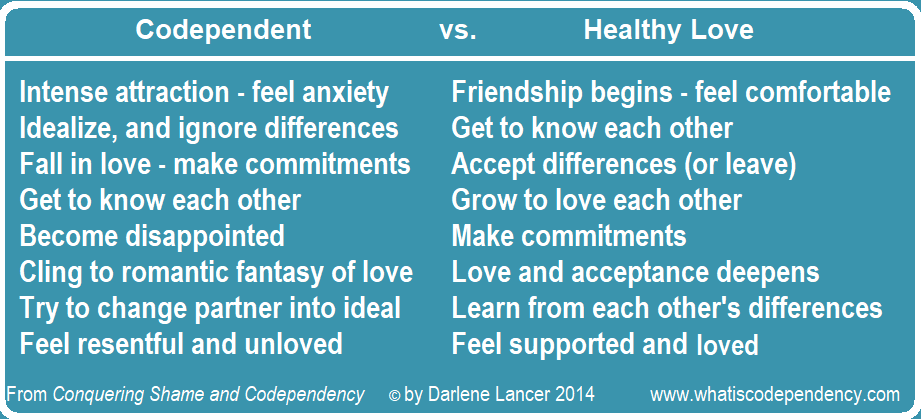Love bombing is one of the biggest weapons of a narcissist when it comes to convincing their victim about their ‘true’ and ‘genuine’ love, and how they want to have an ‘honest and meaningful relationship’ with them.
Getting hit by a love bomb feels glorious! The lavish attention and affection seem to answer our prayers. We’ve found Mr. or Ms. Right―our soul mate; unsuspecting that we’ve been targeted by a narcissist.
The bomber abruptly changes colors and loses interest, and our dream comes crashing down. The rejection is excruciating, especially at the height of romance. It’s a traumatic shock to our hearts. We feel duped, betrayed, and abandoned. We’re confused and try to make sense of the nightmare that was once a dream. What we thought was real was, in fact, a mirage. We search for answers, doubt, and blame ourselves, often losing trust in ourselves and the opposite sex.
Sometimes, partners are ghosted by their disappearing suitor, are dumped by text, email, or a call. If they’re rejected in person, they’re bewildered by the coldness of the narcissist, who just recently expressed love and promised an amazing future together. They may discover that they’ve been disposed of for a new prospect, cheated on, or two-timed all along.
It’s devastating and can be hard to let go because all of their memories are happy and wonderful. It takes time to accept the truth of who the bomber really was. Denial protects victims from the painful truth that the relationship was not what they imagined.

Love bombing and narcissistic supply
Research shows that love bombers have low self-esteem and are often narcissists; although not all narcissists are love bombers, and some non-narcissists are. Despite a façade of confidence and independence, narcissists feel insecure and empty. They require constant reassurance or “narcissistic supply” from those around them, but, like vampires, it’s never enough to fill their emptiness or satisfy their hunger.
Rather than confidence, they actually fear that they’re undesirable. Their sense of self is determined by what others think of them, they try to control what others think to feel better about themselves. Thus, love bombing is thus a means to seek attention, to boost their ego, and fulfill self-enhancement needs for sex, power, and control. When they’re depressed, have suffered a loss, or are disenchanted with their last conquest, they look for new narcissistic supplies.
Many narcissists employ seduction, engage in game-playing, and use relationships for self-enhancement. Dating is intense and moves quickly. The attention can be dizzyingly exciting to the recipient. There’s frequently excessive communication, reflecting bombers’ neediness for affirmation, usually by text or social media, where they can exercise more control at a distance.
Related: The Narcissistic Lover’s Playbook: Stages of Relationship With a Narcissist
Idealization and devaluation
For a narcissist, it’s not enough to be liked or appreciated. It only counts when the other person has status or highly valued qualities, such as wealth, beauty, special talents, power, celebrity, or genius. Narcissists idealize prospective partners to augment their own lack of self-esteem. The thinking is, “If I can win over the admiration of this very attractive person, then I must be worthy.”
As reality creeps into the relationship, they discover that their partner is inadequate or fear that their flawed, empty self will be revealed as expectations for emotional intimacy increase. Any slight or imagined chink in their ideal image of their partner feels painful. As narcissists’ vision of their perfect partner deteriorates, their hidden shame increasingly causes discomfort. They in turn project this onto their partner, whom they criticize and devalue.
This is particularly true of perfectionistic narcissists. When their partner’s luster fades, he or she no longer provides a satisfactory object to boost their self-esteem. They discard their partner and look elsewhere for a new source of narcissistic supply. When relationships with narcissists endure, the partner feels drained, hurt, resentful, and lonely. Disrespect and lack of caring damage his or her self-esteem over time.
Attachment styles
Narcissists have insecure attachment styles that are either avoidant or anxious or some combination. People with insecure attachment styles feel basic insecurity stemming from relationships with early caregivers. They doubt the reliability of others to satisfy their emotional needs and base their self-esteem on the behavior and responses of others.
One study showed that people with an insecure attachment style were more likely to engage in love-bombing.
Codependent partners
Most codependents also have low self-esteem and insecure attachment styles and seek relationships to validate their worthiness. Their unconscious belief is, “If I’m loved, then I must be lovable.” Although some codependents may behave in ways that appear needy and insecure, narcissists hide their neediness and act self-assured, in control, proud, and even cocky―like a male peacock flaunting his feathers.
To insecure codependents, this display is very attractive. They’re impressed and attracted to the traits they wish they had. They, too, idealize narcissists, who soak up their admiration. Narcissists are skillful and charming communicators, adept at making people admire and like them. Both narcissists and codependents are able to adapt to the likes and needs of one another, but for the narcissist, it’s a tactic of seduction; for the accommodating codependent, it’s a way of relating and their personality style. (Conquering Shame compares personality styles of narcissists and codependents.)
When codependents experience love-bombing, their low self-esteem is also raised. They finally feel seen and appreciated, unlike in their childhood. They imagine a future free of their inner emptiness and loneliness with this ideal mate who will always love them. In the initial phase of mutual admiration, they overlook or don’t see differences or potential problems.
Related: How To Identify a Love Bomber: The Narcissist’s Soulmate Scam
Solutions
The good news is that we can change our attachment style. Meanwhile, it’s important to go slow when dating. Rushing intimacy doesn’t rush love, only our attachment. It’s an attempt to gratify personal, psychological needs. It takes time to know someone. That is how trust and love grow in a healthy relationship. Mature daters won’t use undue seduction, charm, or make premature promises and expressions of love. They take time dating in order to assess whether someone will be a good long-term partner, and they won’t want to disappoint or hurt him or her.
Stay connected to your body and your feelings. In the intensity of a new romance, question whether your “excitement” isn’t really anxiety about rejection and uncertain hope about a rosy future. Do you feel free to be open and honest and set boundaries or are you walking on eggshells? Are you complying to please your partner? In other words, can you be authentic, say “no,” and express negative feelings?
That usually takes time and trust. Often codependents think, “I trust people until they give me the reason not to.” Mature individuals know that trust must be earned. Love bombers lie, but it takes time to figure this out.
Watch and listen to how your date treats and talks about others and his or her ex. Does he or she heap praise on you, but orders, blames, or disparages other people? Your date may one day treat you that way.
©Darlene Lancer 2018
Written by Darlene Lancer JD, MFT










Leave a Reply
You must be logged in to post a comment.